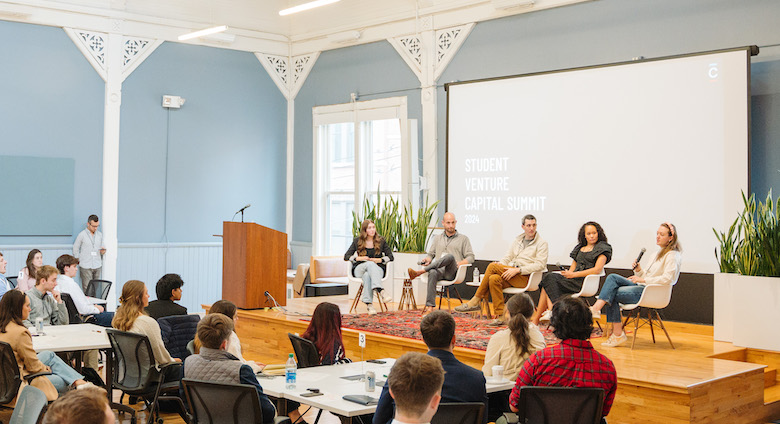Financial services have never been more important to people’s lives — for everyone, not just the privileged few. In the third installment of the FinTech Frontier virtual event series, the discussion centered around how FinTech is creating exciting new ways to enable financial health, wellness and access for every American household.
The FinTech Frontier is the future-focused partnership between Cincinnati-based, industry-leading financial services corporations and Fintech-focused entrepreneurs, powered by Cintrifuse, Cincinnati’s startup catalyst. Western & Southern Financial Group and Fifth Third Bank are the founding partners.
Featured Panelists
Matt Green, W&SFG, AVP Mergers & Acquisitions
Chirag Patel, EY Foundry, Principal
David Hall, Managing Partner at Revolution’s Rise of the Rest Fund
Dari Grant, Solo Funds, Chief Operating Officer
With more than 122 million Americans living paycheck to paycheck, many of whom are underbanked or unbanked, the panelists agreed that now is the time for innovation and collaboration among large financial institutions and FinTech startups to serve this important and growing customer base.
FinTech innovations are already beginning to provide new options for this underserved population including Solo Funds, a lending exchange connecting lenders and borrowers for access to loans under $1,000.
The panelists also agreed that the key to accelerating financial inclusion is understanding the financial needs of underserved customers and how to offer flexibility and responsiveness. For example, gig workers or independent contractors often have trouble proving their credit worthiness
“At Solo Funds, we are really learning that people want to help other people through peer-to-peer lending,” said Dari Grant of Solo Funds. “People want to see other people win. Our loans might be as small as $20 to help someone get transportation to work for the week.”
Chirag Patel of EY Foundry offers three ways to meet underbanked consumer needs:
1) Financial institutions need to recognize that they can make money on lower income households and technology will make it profitable and efficient for both.
2) Banks need to move away from being product pushers (credit cards, mortgages, auto loans, etc.) and think about the consumer and their life events to create loyalty and immediate access to financing.
3) Large banks need to move away from “not-invented here” syndrome or the notion that if it wasn’t built here, it isn’t any good. Banks should be competing on customer relationships not on products.
Additionally, COVID-19 has been a huge accelerator for FinTech in a number of ways with the most important advancement made in the adoption of digital banking and commerce. Those consumers who were shy about digital commerce have been forced by COVID-19 to use apps or digital solutions for everything from health care to grocery shopping and certainly banking.
Watch for startups to continue these advancements, at an accelerated rate, to provide greater access to financial resources for all Americans.




